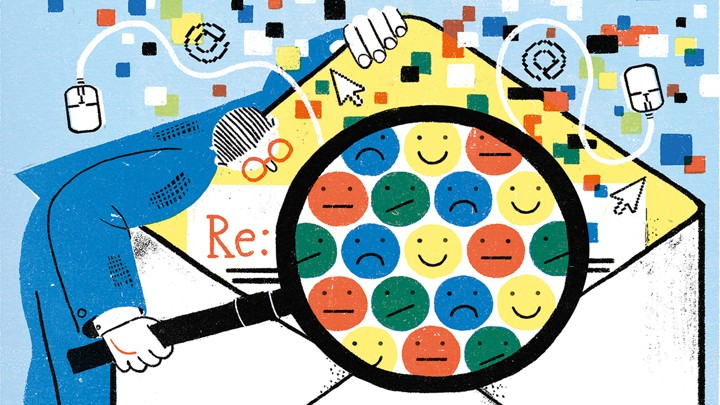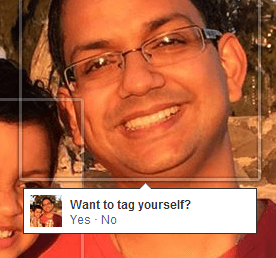Rotten Tomatoes is changing what it looks for in movie critics
It’s making it easier for independent critics to join the platform.
Source: Rotten Tomatoes is changing what it looks for in movie critics
Skim reading is the new normal. The effect on society is profound
When the reading brain skims texts, we don’t have time to grasp complexity, to understand another’s feelings or to perceive beauty. We need a new literacy for the digital age writes Maryanne Wolf, author of Reader, Come Home
The rise of millennials and the death of television
The results of the first round of a YouGov-Mint Millennial survey show that millennials are using social media networks much more than older cohorts
Source: The rise of millennials and the death of television – Livemint
The four ways that ex-internet idealists explain where it all went wrong
21st-century digital evangelists had a lot in common with early Christians and Russian revolutionaries.
Source: The four ways that ex-internet idealists explain where it all went wrong – MIT Technology Review
Pew Study: Teens Aren’t Happy With Their Screen Time
Many parents think teens are too absorbed by screens. Teens agree.
Source: Pew Study: Teens Aren’t Happy With Their Screen Time – The Atlantic
Google Overtakes Amazon In Smart Speakers
Fresh research has revealed that Google has pulled ahead of Amazon in the smart speaker department, the latest move by the tech giant in its quest to be the best in the biz at tracking users and building speech recognition tools.
How Netflix could fix its terrible recommendations
Netflix’s subscriptions are stalling, but tricking users into watching mediocre content is a recipe for disaster.
What Would It Take to Get Businesses to Focus Less on Shareholder Value?
To make world-class corporate citizenship and profitability work in tandem, we need to change the rules so that racing to the bottom is no longer the most effective way to compete, and to ensure that treating people well is the profitable thing to do. This means continuing the push to raise the minimum wage and to make the provision of decent health and educational benefits mandatory — or at the very least, heavily tax-advantaged. It means grappling with the explosion of contract work, ensuring that employers can’t evade their responsibilities by simply relabeling employees as contractors.
Source: What Would It Take to Get Businesses to Focus Less on Shareholder Value?
Facebook is rating the trustworthiness of its users on a scale from zero to 1
The previously unreported ratings system, which Facebook has developed over the last year, shows that the fight against the gaming of tech systems has evolved to include measuring the credibility of users to help identify malicious actors.
Source: Facebook is rating the trustworthiness of its users on a scale from zero to 1 – The Washington Post
Spotify, Other Streamers Losing Revenue To Ad-Blockers
When Spotify detects ad blockers, it warns the free user at least once before suspending them. But the streamer is also building new ways to detect and block the ad blockers.
Source: Spotify, Other Streamers Losing Revenue To Ad-Blockers – hypebot
The 9 Best Books About the Financial Crash 2018
The Shifts and the Shocks: What We’ve Learned — and Have Still to Learn — From the Financial Crisis
How Amazon’s Twitch.tv Cheats Music Creators
Amazon’s Twitch is cheating music creators and rights’ owners out of their just due. Using music without permission or payment deprives creators and performers, and impacts everyone that works for them and with them.
Mark Zuckerberg Is Totally Out of His Depth
And so are all the big boys of tech.
Source: Mark Zuckerberg Is Totally Out of His Depth – Bloomberg
Smartphones act as digital security blankets in stressful social situations
Possession, not use, of a mobile phone counteracts feelings of isolation, UCI-led study finds
Source: Smartphones act as digital security blankets in stressful social situations | UCI News | UCI
Elon Musk Loves Twitter, Twitter Loves Elon Musk
Tesla’s billionaire CEO is revealing exactly what the social platform is truly optimized for—the amplification of powerful voices.
Source: Elon Musk Loves Twitter, Twitter Loves Elon Musk – The Atlantic
How Your Brain Tricks You Into Believing Fake News
‘It’s the equivalent of a public health crisis.’
Source: How Your Brain Tricks You Into Believing Fake News | Time
Rules Won’t Save Twitter. Values Will.
The platform won’t ban the dangerous liar Alex Jones because he “hasn’t violated our rules.” Then what’s the point of these rules?
Source: Opinion | Rules Won’t Save Twitter. Values Will. – The New York Times
Snap’s Drop in Active Users Could Signal a Social Media Peak
The maker of Snapchat said it lost 3 million daily active users in the latest quarter, following similar drops or flattening growth from Facebook and Twitter.
Source: Snap’s Drop in Active Users Could Signal a Social Media Peak – The New York Times
AI That Reads All a Company’s Emails to Gauge Morale
Employee emails contain valuable insights into company morale—and might even serve as an early-warning system for uncovering malfeasance.
Source: AI That Reads All a Company’s Emails to Gauge Morale – The Atlantic
Gatekeepers or Censors? How Tech Manages Online Speech
The rules that Apple, Google, Facebook and Twitter follow in their roles as arbiters of online speech are often vague. Critics say they are arbitrary.
Source: Gatekeepers or Censors? How Tech Manages Online Speech – The New York Times
Cook says Apple not in music streaming for the money, touts human content curation
Apple CEO Tim Cook recently sat down to discuss Apple Music and its place in the burgeoning music streaming world, once again touting the service’s human content curation as a key benefit over competitors like Spotify.
Source: Cook says Apple not in music streaming for the money, touts human content curation
Spotify’s $30 billion playlist for global domination
How CEO Daniel Ek plans to beat Apple, Amazon, and Google at the music game.
Source: Spotify’s $30 billion playlist for global domination
Redesigned Snapchat sees users drop by 3 million for quarter
Snapchat released its second-quarter results showing a declined in daily users to 188 million, but ad sales were strong up 44 percent to more than $260 million.
Source: Redesigned Snapchat sees users drop by 3 million for quarter | Digital – Ad Age
The Expensive Education of Mark Zuckerberg and Silicon Valley
They have weaponized social media, and we are all paying the price.
Source: Opinion | The Expensive Education of Mark Zuckerberg and Silicon Valley – The New York Times
5 Ways Brands Can Engage Gen Z On Social Media
With buying power of over $140 billion Gen Z’ers are rightfully so an appeal for brands. Engaging with them, especially on social media, can be challenging. Here’s 5 ways to meet those challenges head on.
Facebook Earnings Show Slow Growth Due to Lack of Humans
Facebook stock fell 24 percent overnight not because of political scandal but because there just aren’t enough people for it to grow.
Source: Facebook Earnings Show Slow Growth Due to Lack of Humans
How Smart Speakers Are Changing the Way We Listen to Music
With everyone from Amazon to will.i.am trying to get us to talk to their speakers, should listeners be excited, or worried?
Source: How Smart Speakers Are Changing the Way We Listen to Music | Pitchfork
Lobe Is A Machine Learning Platform For Complete Idiots
From Apple, Facebook, and Nest alum Mike Matas, Lobe makes it so you don’t need to be a data scientist to build incredible AI tools.
Source: Lobe Is A Machine Learning Platform For Complete Idiots
Walmart.com Redesigns As The Anti-Amazon
The retailer wants to translate the best parts of its stores–like the friendliness of its greeters and the local preferences of its shoppers–for the web.
Spotify missed big on its bottom line
Spotify missed big on its bottom line. Investors sold the stock on the news. In recent after-hours trading, shares in the streaming music company were down $14.30 a share, or 8.41%, to $155.70
The streaming music company’s number of paying subscribers grew to 75 million during the first three months of the year, in line with expectations and maintaining Spotify’s lead in a heated battle with Apple Music, which has 40 million paying subscribers. But diminishing revenue-per-user, as Spotify races to boost its membership through discounted family and student plans, took a toll.
Google Wunderkind Is Building a Secret Social-Gaming Startup
Google is secretly building a social-gaming startup, part of its effort to create fledgling companies within the internet-search giant.
Source: Google Wunderkind Is Building a Secret Social-Gaming Startup – Bloomberg
Pandora Learns the Cost of Ads, and of Subscriptions
A 21-month study finds that as users are fed more ads, they listen less; some subscribe, but not enough to compensate for lost ad revenue.
Source: Pandora Learns the Cost of Ads, and of Subscriptions | WIRED
Disney Digital to launch an over-the-top video app for millennials, as it woos advertisers burned by YouTube
Ahead of the 2019 launch of Disney’s Netflix competitor, the company’s digital arm will launch a free, over-the-top video app aimed at millennials sometime this summer. The hook for advertisers is that they’ll have a way to reach Disney’s millennial audience, without the concerns that have afflicted YouTube in recent months.
An Apology for the Internet — From the People Who Built It
Big Data Is A Sham
Decades of research has shown that you can get a pretty accurate picture of the US population from a sample of under 3000 people, if you choose them carefully. If you really, really want to drop your margin of error as low as possible, you look at about 9000. After that, there’s just not a lot of gains to be had. U.S. pollsters looked at the intentions of hundreds of thousands of Americans and still called the 2016 election wrong. Politicians’ careers depend on accuracy. Creative people’s careers depend on insights, and that’s where small data rules.
Source: Big Data Is A Sham
True enough. But big data companies are not trying to predict population trends. They want to microtarget individuals.
Facebook’s Current Status With Advertisers? It’s Complicated
Marketers have long had a symbiotic relationship with the social network. But user concerns about data has companies taking a harder look at how they work with Facebook.
Source: Facebook’s Current Status With Advertisers? It’s Complicated – The New York Times
Netflix impresses on subscriber growth in Q1
Netflix’s content investment strategy is seen as the key instigator for its growth, especially as Netflix invests more in local-language fare. In 2018, Netflix plans to spend $10 billion on content and marketing: $8 billion in content (both originals and licensed acquisitions), yielding 700 originals in total; and $2 billion on marketing, with Q1 marketing spend reaching $479 million, up 77% YoY. Going forward, more spend will go to producing original content or licensed originals as a percentage of overall investment, compared with spending on licensed content.
Source: Netflix impresses on subscriber growth in Q1 – Business Insider
AI chips soon will power PCs, cars, security cameras and smart speakers
Processors with artificial intelligence will spread from today’s top-end phones to cars, PCs, security cameras, smart speakers and mainstream phones.
Source: AI chips soon will power PCs, cars, security cameras and smart speakers – CNET
How Technology is Hijacking Your Mind — from a Former Insider
Where does technology exploit our minds’ weaknesses?
Source: How Technology is Hijacking Your Mind — from a Former Insider
We Already Know How to Protect Ourselves From Facebook
Facebook may complain that these changes to data collection and use would destroy the company. But while these changes would certainly challenge the business model of many players in the digital economy, giant companies like Facebook would be in the best position to adapt and forge ahead.
If anything, we should all be thinking of ways to reintroduce competition into the digital economy. Imagine, for example, requiring that any personal data you consent to share be offered back to you in an “interoperable” format, so that you could choose to work with companies you thought would provide you better service, rather than being locked in to working with one of only a few.
Source: Opinion | We Already Know How to Protect Ourselves From Facebook – The New York Times



































